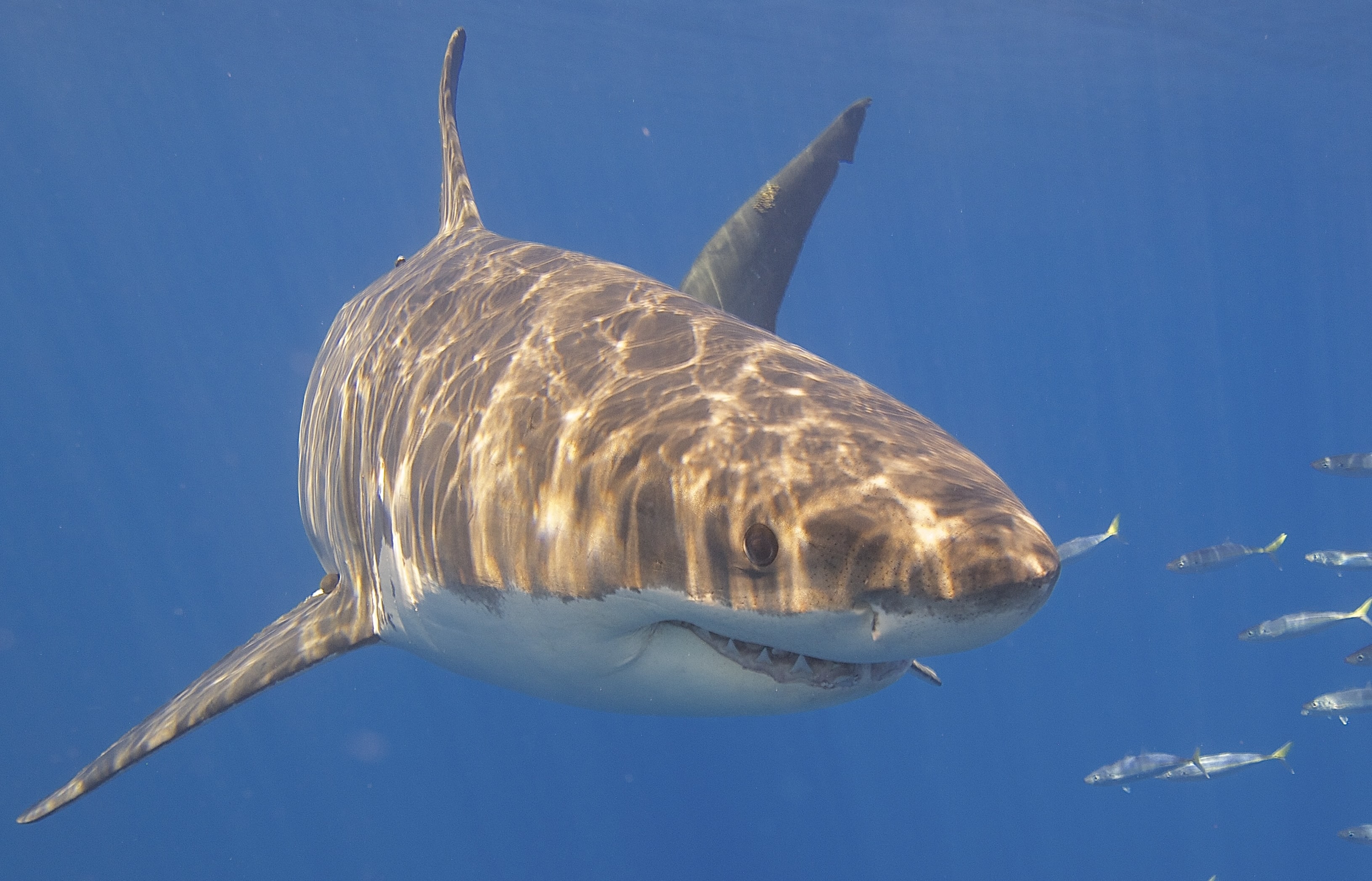Hunters are using signals from radio tags to track at-risk species, including wolves and sharks, a group of biologists says.
The behaviour of non-endangered species is also being skewed by the tags as nature fans use the signals to get close to wild animals.

Great white shark. Photo: CC BY 2.0 Elias Levy / Flickr
The group has started collecting evidence to measure how tagged species are being harmed.
They are calling for changes to tagging systems to make them harder to abuse.
Spokesperson Prof Steven Cooke, a biologist at Carleton University in Canada, said scientists using tagging were increasingly worried about the technology's "unintended consequences".
Tagging with transponders, which communicated via satellite or radio, had produced "incredible" insights into the movements and lifestyles of different creatures. In some cases, tags were used to keep an eye on endangered animal populations.
For example, he said, more than 100,000 tagged fish were released into the Columbia Basin each year to help monitor fish stocks, movements and migration patterns. The Great Lakes, meanwhile, were home to more than 5000 tagged fish.
A paper co-written by Prof Cooke and his colleagues for Conservation Biology detailed some of the "troubling" ways in which tags had become an inadvertent aid to poachers, hunters, photographers and nature lovers.
Examples gathered by the scientists included:
- Sharks tagged during a conservation programme in western Australia which were found and killed by people homing in on radio signals
- Attempts by poachers in India to hack GPS data sent by collars on Bengal tigers
- Commercial fishing vessels using radio data to find fish known to feed near the species they wanted to catch
- Efforts by "wolf-persecution" groups in the US to decode signals to help them hunt down the predators
Some national parks had taken steps to limit abuse by banning radio receivers that could pick up the "beeps" sent out by some types of tag, Prof Cooke said.
Prof Brendan Godley, the director of the centre for ecology and conservation at the University of Exeter, said the lifestyles of some species made it easier to abuse tag data.
Knowing the approximate location of a shark, he said, would help track it as they were likely to respond to lures, such as baited lines or food trails, put in the water close to them.
By contrast, he said, other species might be harder to find, despite being tagged, because they did not respond in the same way.
Prof Godley said tagging had an impact far beyond improving understanding of how animals lived.
Tagging could contribute to conservation efforts and make them more effective, he said.
"Within two weeks of tagging leatherback sea turtles we were able to show that the marine park that was set up for their benefit was inadequate," he said.
Data provided by tagging meant fishing fleets could be told to avoid areas where turtles were nearby.
However, aspects of tagging had become a contentious issue that had to be tackled, he agreed.
"Scientists need to do a better job of getting the public aware of why they are doing the research and we need to do a better job of sharing the dividends of our work."
- BBC / RNZ

